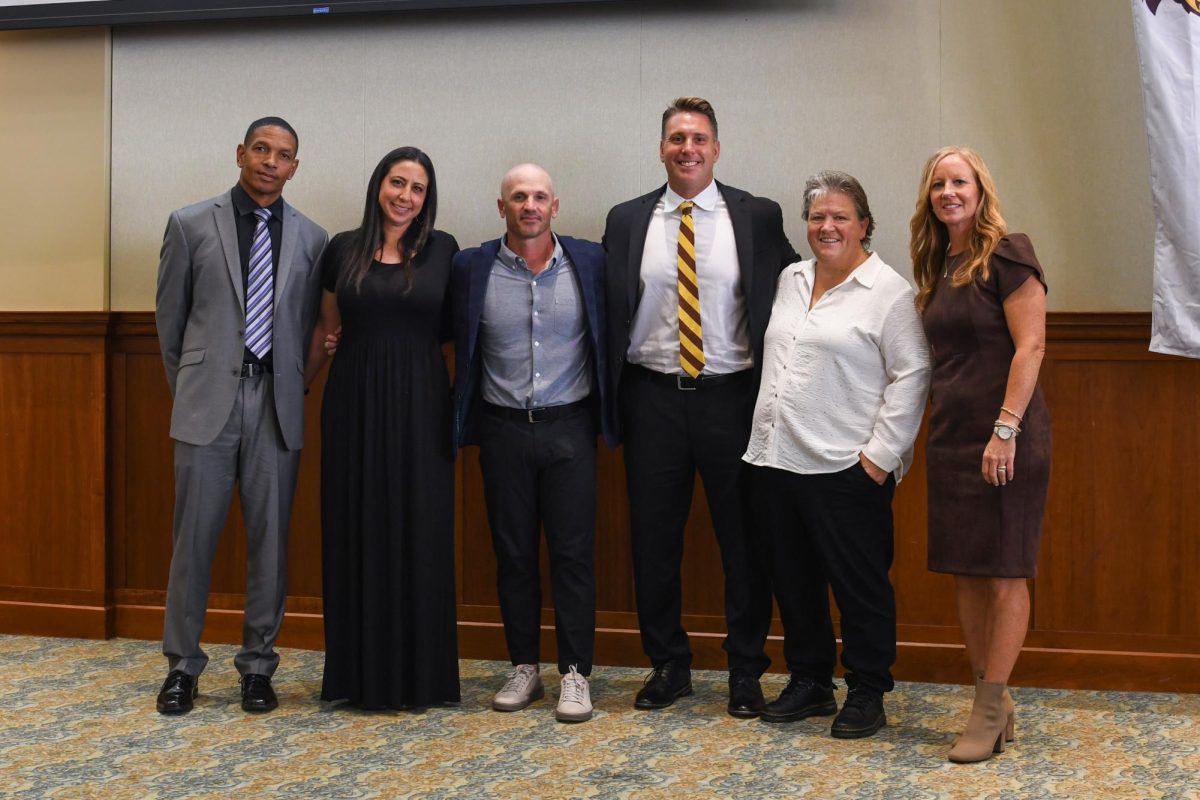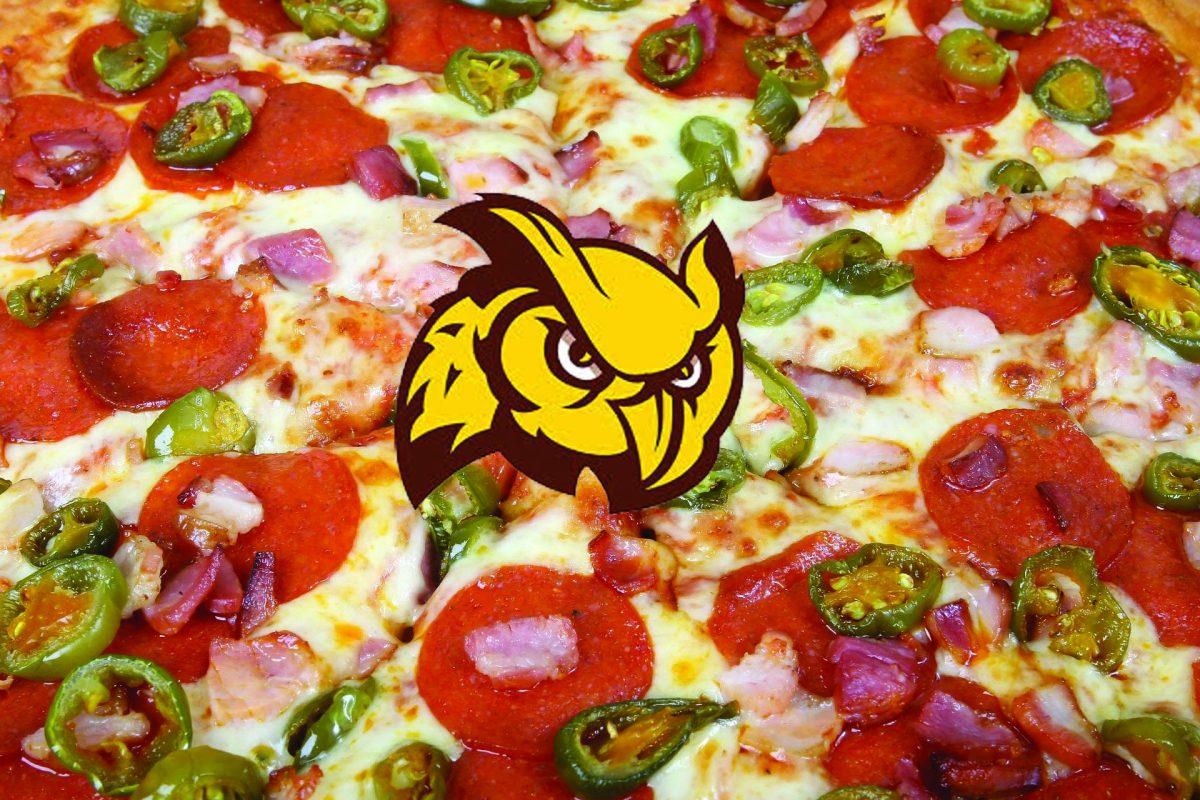Rowan University’s Center for Sports Communication and Social Impact started back up their staple weekly event, Pizza with the Pros, this week.
This past Monday, Philadelphia Eagles Hall of Famer and NBC Sports Philadelphia Game Analyst Seth Joyner was the guest speaker at the event. Some of Joyner’s accomplishments include being a 13-year linebacker, three-time pro bowler and a Super Bowl champion. Joyner is now a Philadelphia Eagles pre- and post-game live analyst and hosts his own weekly podcast show.
Here are some highlights of Joyner’s talk with the students:
On Recent Events
When talking about Super Bowl LV, Joyner expressed a great deal of interest in how well the Tampa Bay Buccaneers defense played. He said that defenses can change games.
“They still do win championships, they still do matter,” Joyner said.
When asked about the current Philadelphia Eagles organization, he mentioned that the team is really “in trouble.”
Joyner believes that Eagles owner, Jeffrey Lurie, is not necessarily a problem. He does believe, however, that EVP Howie Roseman might not be the best fit for the Eagles anymore.
He mentioned that the Eagles organization may spend about 2-3 years rebranding before they will be back to being Super Bowl contenders.
Branching off of this, he also feels “on the fence” about the Carson Wentz quarterback situation. Joyner stated that he wished that Wentz would make a statement, at least for the fans, since there are so many trade rumors and news stories floating around.
He also mentioned how the contract extension should have not been discussed so soon, and that ultimately, it’s best for the Eagles to move on from Wentz.
On Playing
Joyner briefly discussed the importance of being a versatile football player. When asked if he loved one of the two positions that he played more, he said that versatility was what he loved the most.
“A guy who can do a lot in football is more valuable,” Joyner said.
When discussing locker room drama, he said that everyone is responsible for their job and doing what they need to do to get the job done on the field.
A football team has three units: offense, defense and special teams. If one unit isn’t working, the other two have to step up. If two aren’t working, then they need to assess where they went wrong and come back stronger. To combat these issues before they arise, Joyner said that confidence in your units and coaching staff is so important.
The person that influenced him the most is Buddy Ryan, former Arizona Cardinals and Philadelphia Eagles coach.
Joyner said that Coach Ryan coached with “tough love,” pointing out that if you did something wrong, he would call you on it. Joyner mentioned that this kind of coaching style wouldn’t fly today, as most football players do not like to be criticized on their faults.
A balance between criticism and comfort is what Joyner thinks would be the most effective coaching style for today’s players.
On Transitioning Careers
After retiring from the NFL, he didn’t know what he wanted to do. He wasn’t ready to be a coach, so broadcasting felt like a perfect option. He wanted to teach the game as opposed to just talking.
While working on the national level, he expressed dislike for how the on-air talents were treated. Working on a local television station feels “organic” to him.
Going off of that, he also explained that he transitioned from playing to broadcasting in an untraditional way. He waited about two years before broadcasting, and he became educated to do so through the help of different people in the field.
On Broadcasting
Versatility creates value. He started his own show to learn how to navigate a show. It’s all about learning when to “pull” and “push” when letting analysts and reporters talk versus when the host talks.
He also said he learned how to properly talk about analysis, hosting and football from a statistics standpoint. However, he mentioned that analytics took over the NFL. He gave advice on how research and practice will allow you to navigate and predict what the team might do. He emphasized the importance of researching with data, even if that’s not your job in the field.
On Career Advice
Joyner discussed the importance of having love and passion for the sport you want to broadcast for. He also gave advice on how you should talk when broadcasting, saying that if you have a lot to say, you need to learn to condense it into 10-15 second windows.
He briefly talked about his first few times broadcasting and how he didn’t do as well as he does now. It’s a lot to take in, but he mentioned this: “If it’s worth being successful in, you’ll put in the work and find a way.”
When discussing who he would hire as a broadcaster, he talked about how important it is to know what your job is. As a “main host,” it’s your job to set up the analysts and reporters with questions and let them go. They should also control the direction of the conversation.
On Being a Philadelphia Eagle
Looking back on his time as a Philadelphia Eagle, he knew that as an eighth-round pick, he was someone that might stay on the team or get cut. Because of his tremendous career as an Eagle alone, he was inducted into the Eagles Hall of Fame, which he described as a “tremendous honor.”
Joyner said that when the Eagles won Super Bowl LII, it was a big deal for all Eagles players, past and present. It gave them a year to brag, put them on the Super Bowl map and gave them the aspiration to get another Super Bowl win. During the game and during the Super Bowl parade, it gave everyone from all walks of life a chance to come together in unity and celebrate this achievement.
You can join the Rowan Center for Sports Communication and Social Impact next week, Feb. 15 at 6 p.m., when SVP and Senior Strategy Officer of the New York Mets, John Ricco, chats with students about what he does for a living.
For comments/questions about this story, tweet @TheWhitOnline.

































































































































































































